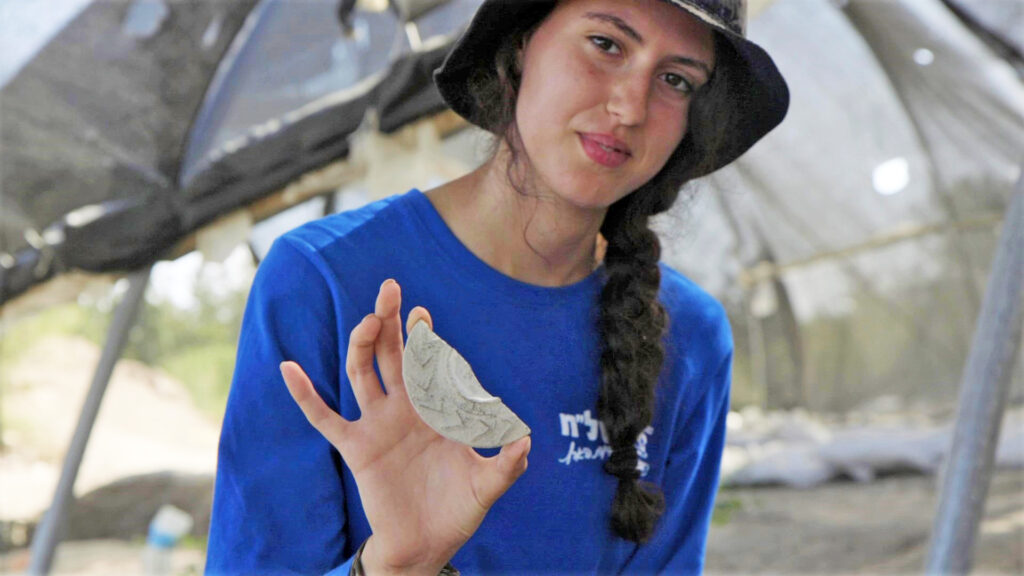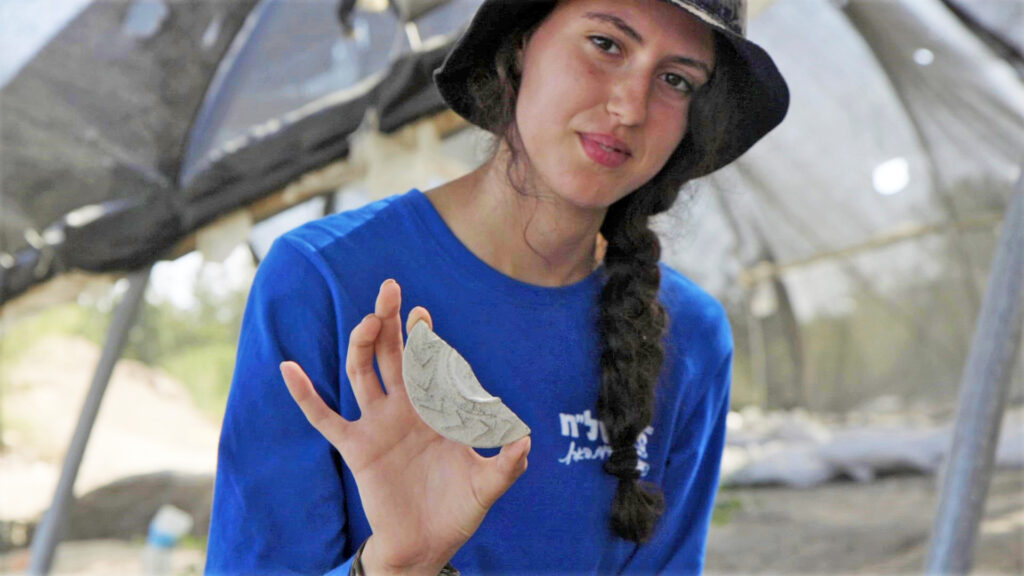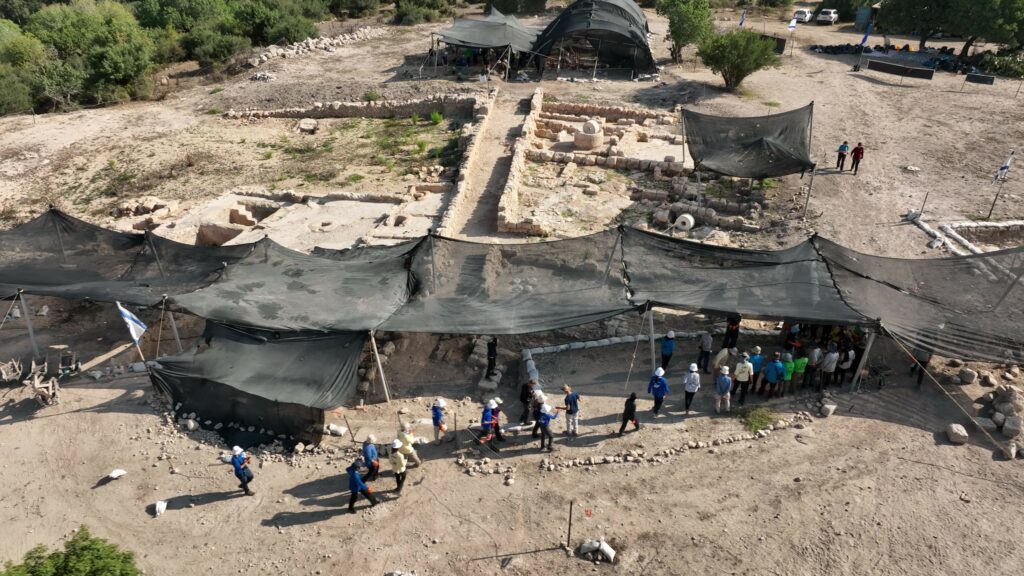Your cart is currently empty!

Ancient ‘magical mirror’ discovered by youth leader in northern Israel

Ancient ‘magical mirror’ discovered by youth leader in northern Israel
Earlier this week, seventeen-year-old Aviv Weizman from Kiryat Motskin, near Haifa, took part in an Israel Antiquities Authority (IAA) archaeological excavation at the ancient site of Usha as part of the Young Leaders’ Survival Course and uncovered an exceptional find from the Byzantine period—a 1,500-year-old “magical mirror.”
Some 500 high-school pupils participated in a “Survival Course” run by the Shelah and Land of Israel Studies branch of the Ministry of Education. During the Ministry of Education Shelah Young Leaders’ Survival Course, the young leaders take part in a 90-km survival trek from Mount Meron to Mount Hermon. In the course of the trek, the youth participate in IAA archaeological excavations at sites located around the country that will be opened to the general public in the future.
One of the places where the youth dug was the site of Usha, close to Kiryat Ata, directed by the IAA archaeologist Hanaa Abu Uqsa Abud. This week, the excavation produced a special find: an unusual pottery sherd that peeped out of the ground between the walls of a building. Aviv uncovered the sherd and picked it up, and showed it to Dr. Einat Ambar-Armon, Director of the IAA Northern Education Center, who recognized the find as the plaque of a magical mirror.

According to Navit Popovitch, Israel Antiquities Authority Curator of the classical Periods, “The fragment is part of a ‘magical mirror’ from the Byzantine period, the 4th–6th centuries CE. A glass mirror, for protection against the Evil Eye, was placed in the middle of the plaque: the idea was that the evil spirit, such as a demon, who looked in the mirror, would see his own reflection, and this would protect the owner of the mirror. Similar mirror plaques have been found in the past as funerary gifts in tombs, in order to protect the deceased in their journey to the world to come.”
Eli Shayish, Director of the Ministry of Education Shelah and Land of Israel Studies, said, “The participation of the pupils in the archaeological excavations deepens their feeling of belonging to the country and its heritage.”
Eli Escusido, Director of the IAA: “During the week-long trek, the young leaders discovered additional finds, including pottery jars, coins, decorated stone fragments, and even a a water aqueduct. History, usually taught in the classroom, comes to life from the ground. A pupil who uncovers a find in the course of an excavation will never forget the experience. There is no better way to attach the youth to the country and the heritage.”

“This find embellishes the two-way contribution of the cooperation between the IAA and the Ministry of Education Shelah Project: at the same time, uncovering the country’s past, and also providing the youth with a personal empowering experience, connecting them to their roots,” Saar Ganor, coordinator of the project on behalf of the IAA, stated.
In October 2019, the IAA published the discovery of a Byzantine-era hammer and nails discovered at Usha, by which finds it is thought that the town’s inhabitants worked in metallurgy. Usha was also important in the Talmudic era because some of the pupils of Rabbi Akiva resided there, including Rabbi Shimon Bar Yochai.
The post Ancient ‘magical mirror’ discovered by youth leader in northern Israel appeared first on Israel365 News.
Israel in the News